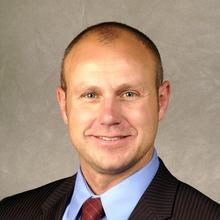Exploring Plasma Heating and Particle Acceleration at Quasiperpendicular Collisionless Shocks Using the Field-Particle Correlation Technique
Professor Gregory G. Howes; Department of Physics and Astronomy, University of Iowa
Collisionless shocks play an important role in the conversion of supersonic flow energy to thermal energy at important boundaries in the heliosphere, such as at planetary bow shocks, the termination shock in the outer heliosphere, and interplanetary shocks propagating through the solar wind. In addition, collisionless shocks can lead to the acceleration of a small fraction of particles to high energy. Many of these energization mechanisms remain poorly understood, but kinetic simulations and spacecraft observations present valuable opportunities to improve our understanding of the fundamental kinetic physics. Here I will review the kinetic physics of the conversion of energy from upstream kinetic energy to downstream internal energy and the acceleration of a small fraction of particles to suprathermal energies. Energy conversion is largely governed by the magnetic forces in the shock ramp, while particle acceleration arises through the mechanism of shock drift acceleration of particles initially reflected at the shock transition. The field-particle correlation technique can be used to identify the regions of velocity space in which particles are accelerated by the shock drift acceleration mechanism through a unique velocity-space signature. I will present velocity the velocity-space signatures of shock drift acceleration from a suite of 16 3D-3V hybrid kinetic ion/fluid electrons simulations over the range of Alfven Mach numbers from 4.5 to 16 and shock-normal angles from 45 to 90 degrees.
